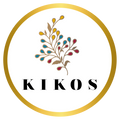When the founders of Kikos Coffee & Tea say ‘it’s in our blood’, they’re not kidding

Not all coffee is created equal.
That holds true for taste and flavor but it also applies to operations, supply chain logistics and sustainability, too.
The bigger picture is exactly what drove Ureeka Community members and co-founders Juan Arroyave and Peter Burgos to launch Kikos Coffee & Tea.
They knew the difference because farming has been an integral part of their family history for generations, which made launching a business around carefully sourced and sustainable coffee a passion worth pursuing.
We connected with Arroyave and Burgos to hear their story and learn how Kikos has pivoted and grown during the pandemic.
1) For folks learning about Kikos for the first time, would you share a bit about how you got started and your vision as a company that embraces social impact?
Originated in Revere, MA, Kikos Coffee & Tea specializes in producing, sourcing and providing high quality coffee products and tea to B2B and B2C markets in the United States. As founders, we wanted to bring “real” Colombian coffee; not blended with other origins or qualities to increase margins, but a coffee that actually represents our culture and our diversity.
Since the creation of the brand Kikos has evolved rapidly due to our high bar for customer service and high quality product. In fact just since April 2020, we have incorporated a new roast (“Dark” - a new kind of dark!) as well as 13 loose leaf tea flavors and our newest product Kikos Snapchilled Products. We are also currently working on developing new canned products. When the market asks, we listen.
On the social impact side of things, we partner with Impact-U foundation to help educate those in need from vulnerable communities in Colombia. We are also active volunteers and support financially as much as we can. As you might imagine, COVID-19 impacted our business and our city. We have donated more than 500 lbs of coffee in the last year to those in need including partnering with organizations like YMCA, Women's Lunch Place, Basil Tree Catering, City of Boston and many more.
2) Sourcing organic and fair trade products definitely takes some practice, can you tell us about how you built that into your operations?
Our family through generations have been farmers, so Fair Trade is not something additional but something in our blood. We support our communities as we grow because we recognize we must grow together to build a sustainable society. Our goal is to buy only from certified Fair Trade farmers, making sure everybody in the process is being paid and treated fairly.
3) It's no secret 2020 was an intense year for small business owners, and anyone trying to balance retail, e-commerce, wholesale etc. had to make choices related to the pandemic. What are some choices you made and what helped you chart a path forward?
It was a tough year. Cost of goods went up, shipping costs went up, marketing prices went up, sales went down, clients closed their businesses. These are just some of the challenging situations we faced. Before COVID-19, our efforts were oriented to wholesale and so we have continued that but also pivoted our business by investing in our end consumer, not only with more marketing but by offering more coffee and tea products and listening to what our customers were asking for.
4). We notice you have a few certifications in place around LGBT-owned and as a Certified Minority Business Enterprise. For new business owners who are thinking about pursuing similar certifications, can you share a bit about how that works?
For us it is a way to tell the world who we are, where we come from and our values. It represents the journey and challenges we faced being minority and LGBT, not only in our personal lives but with respect to our business. When you do something that you are passionate about and it truly reflects you, there is no other way than forward.
If you are a minority or diverse entrepreneur and you own a business we definitely recommend getting certified. Advantages include community support and assistance with understanding procurement processes for corporate and government agencies. Getting certified has been one of the greatest things that has happened to us. It is a process where you have to present and prove you are a minority and diverse with tons of paperwork, but for us it's been worth it.
5) What are some tools and practices you rely on that you would recommend to a business owner who is just starting out?
Networking, networking and networking!



